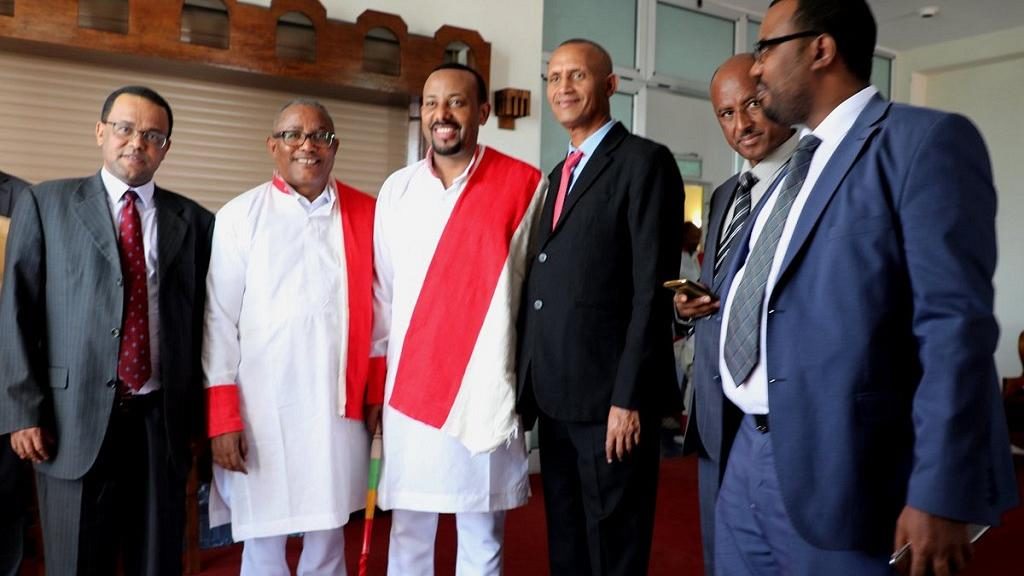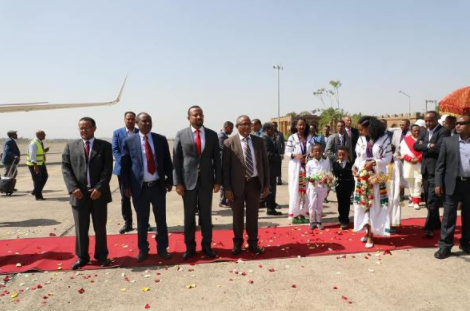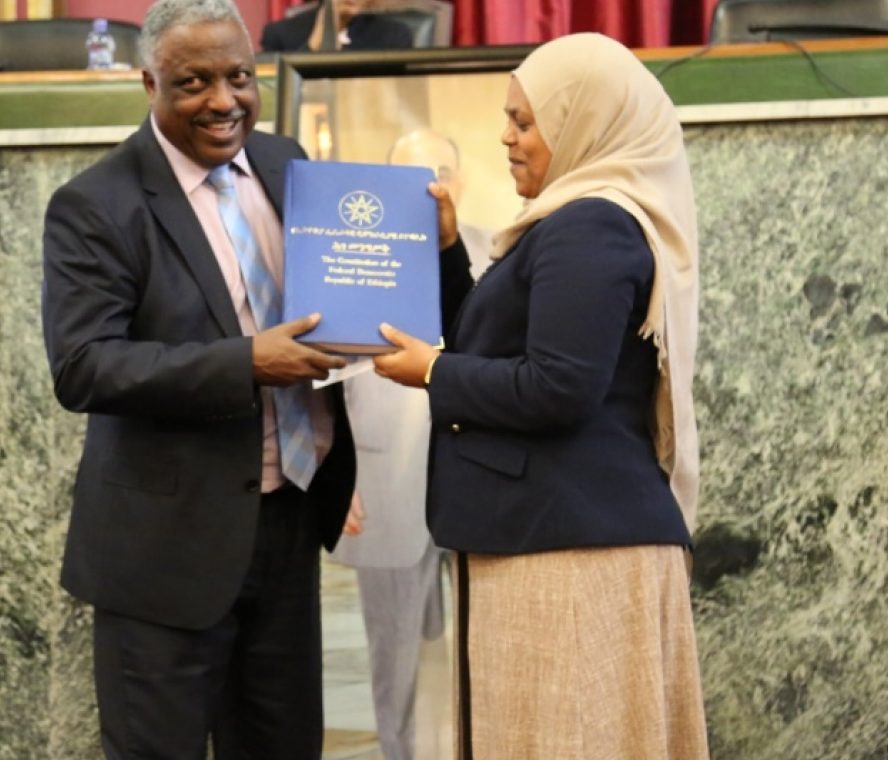
Prime Minister Dr Abiy presented the former Premier with the country’s Highest Medal and Highest Diploma of Honor at a farewell ceremony held at the National Palace.
During the event, Prime Minister Abiy thanked the former Premier for his contribution to the country and described him as “an academic who has a special quality that could be a model for all of us.”
“Hailemariam taught us a lot. He taught us that power should be used to serve the public, not for personal use,” he said.
The Premier further thanked former First Lady Roman Tesfaye for her contribution to the success of the former Premier Hailemariam Desalegn.
Hailemariam said the new Premier should be given time, support, and advice for the challenges that lie ahead, instead of criticizing him.
“The Prime Minister is young and can contribute a lot,” he said, adding “I’m happy to see that our country is on a good hand.” “Currently, the country is in a good wind of change. We should do our best to make the change meet the needs of all of us,” he said.
The former Premier finally thanked his form cabinet, public service staff, and all Ethiopians for the contribution they made for his success during his tenure as Prime minister.
Hailemariam resigned from his posts as Chairman of EPRDF and Prime Minister of Ethiopia in February to become part of a solution for the reforms underway in the country.
The former Premier transferred power peacefully to the newly elected Prime Minister Dr Abiy Ahmed.
Hailemariam was elected as Chairman of EPRDF and Prime Minister of Ethiopian in September 2012 following the sudden death of the great leader Meles Zenawi in August 2012.

 Ethiopia Premier Abiy Ahmed visited on 20 April the cities of Gondar and Bahir Dar town in the northern Amhara region. The trip was of his nationwide tour that started two weeks ago.
Ethiopia Premier Abiy Ahmed visited on 20 April the cities of Gondar and Bahir Dar town in the northern Amhara region. The trip was of his nationwide tour that started two weeks ago.



